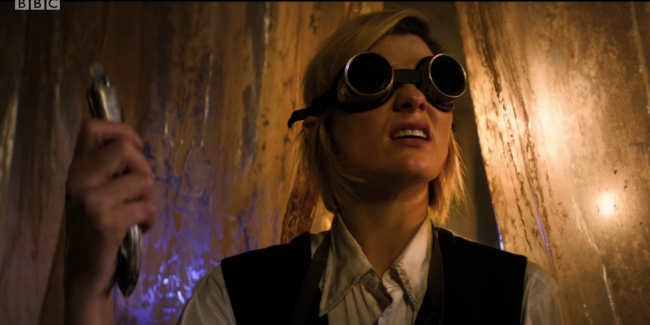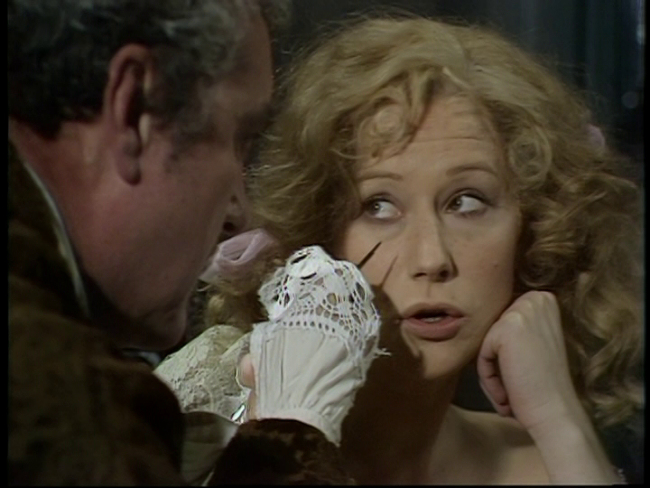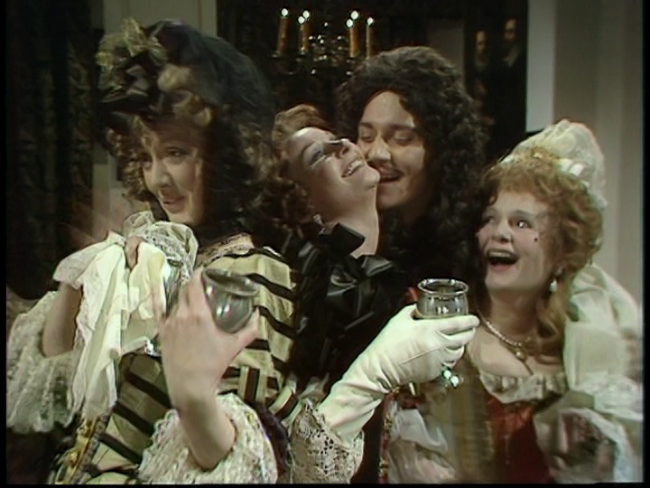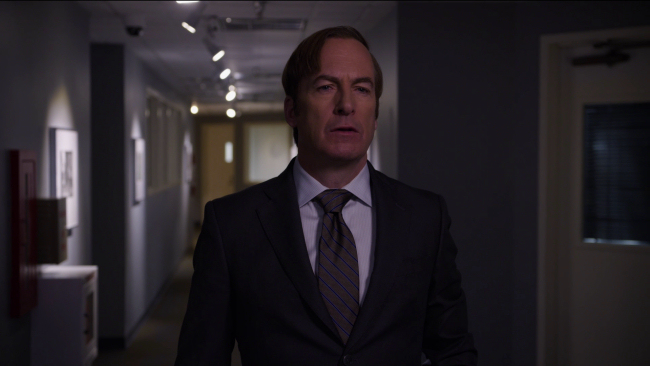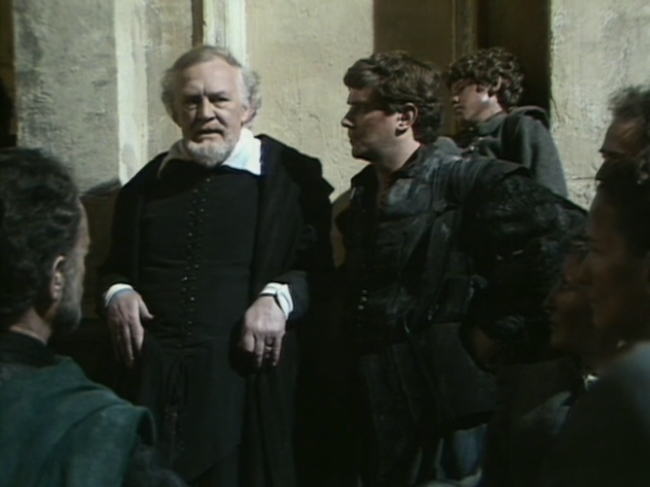
I've been so caught up lately watching Shakespeare productions from decades ago on Amazon Prime I almost missed it when a brand new, 2018 production of King Lear, my favourite Shakespeare play, was released on the service. Directed by Richard Eyre, who did the 2012 productions of the Henry IV plays for the BBC I didn't like, this King Lear is by no means my favourite but isn't altogether bad.

Anthony Hopkins is much too shouty as Lear at first, his delivery almost a monotone of bemused, rancorous yells. I warmed to his unconventionally repressed performance a little bit in the second half, though. When he brings in Cordelia's corpse at the end he's not crying but grinning, holding up the feather and talking about how it doesn't stir as though he's mocking the assembled troops for expecting it would. It was a nice way of showing how the man is retreating into his accustomed psychological barriers when the pain gets too much. He turns into a desperate boast his lines about besting Cordelia's hangman in combat. But it's good he does break down in tears eventually when this doesn't prove enough.

There are plenty of stars in the cast giving performances ranging from good to really good. The roles cast surprisingly with non-stars are Cordelia and the Fool; Florence Pugh and Karl Johnson, respectively, and it seems like Eyre has little interest in either character. Much of the Fool's first lines, criticisms for Lear thinly veiled as entertainment, are heard off-screen as the camera focuses on a brooding Goneril played by Emma Thompson.

I think someone decided Goneril was sexually abused by Lear. She curls up and recoils when he gets near and at one point he kisses her full on the lips after which she clasps both hands on her mouth, looking horrified. I guess it's a fair enough additional motive added for her apparent disregard for him but I found it more of a distraction than anything else. It introduces too many questions that aren't answered. Does Cordelia know about it? What does she think about it? What do any of Lears friends and supporters think about it?

Emily Watson is fine as Regan while Tobias Menzies, best known as the flamboyant, two dimensional villain from Outlander, plays Cornwall as a flamboyant, two dimensional villain. Christopher Eccleston is interesting as Oswald, a role usually played with similarly over-the-top priggishness. Eccleston's Oswald is slightly effeminate and really doesn't seem to understand what he's doing wrong by not treating Lear with deference, which somehow makes his run-ins with Kent (Jim Carter) really funny.

Jim Broadbent comes off as decent and kind as Gloucester, except in his first lines about Edmund, of course. John Macmillan, who doesn't have a Wikipedia entry, plays a mixed race Edmund, making good use of the potential in his lines for commentary on racial bias instilled by culture. He plays the role a bit broadly for my taste, though.
A lot of the characters are wearing military uniforms; the Wikipedia entry says it's set in an alternate universe, militaristic 21st century London, but putting everyone in modern military garb for a Shakespeare production is so conventional now it's gone past cliche to almost invisible. The famous storm sequence is drably, really unconvincing cgi.

Couldn't they have at least gotten a wind machine?
The performances are good, though, and I don't feel like I wasted my time watching it. But I wouldn't recommend it to anyone as the first production of King Lear to watch.
Twitter Sonnet #1163
Connected cans consort to cop a phone.
Distorted tanks collude to stretch the tread.
A kind of ink dissolves a human bone.
Refurbished walls conceal what painters said.
Collected shields conceal colossal arms.
Tomato shapes conspire late to-day.
Decrepit walls protect the elder farms.
Encased in cagey wool the troops display.
Decisions set in dark and courtless webs.
Tenacious seeds connect the tiny rocks.
Occasion serves when noodle's ocean ebbs.
In tightened strings the frigates built the docks.
The gift of plaque rewards recoiled gums.
Recounted years reveal consistent thumbs.












